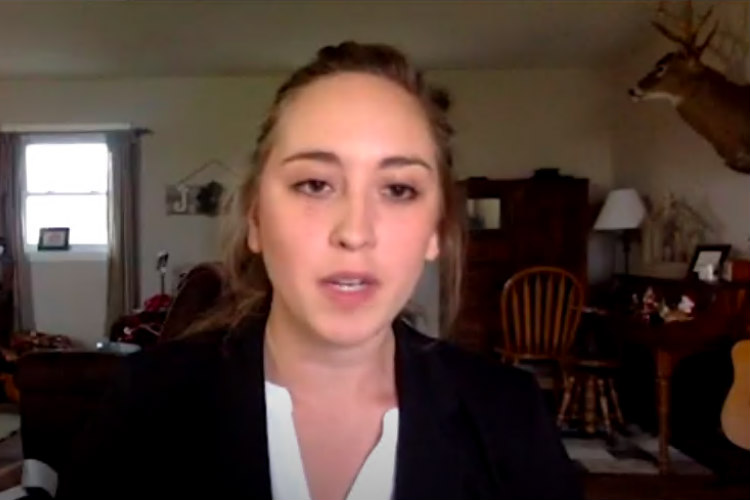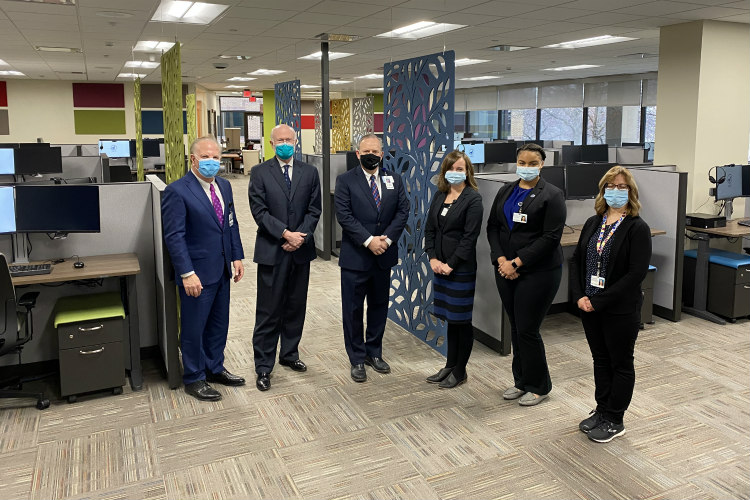The University of Missouri-Kansas City School of Medicine is expanding its program to St. Joseph, Missouri, to address the state’s rural physician shortage.
UMKC received a $7 million grant from the Health Resources and Services Administration (HRSA) to start the new program in January 2021. HRSA, the primary federal agency for improving access to health-care services for people who are uninsured, isolated or medically vulnerable, will pay out the grant over four years.
“We are thrilled we will be able to address a critical health-care need in Missouri,” said Chancellor Mauli Agrawal, Ph.D. “This will enable more patients throughout the state to get better access to high-quality medical treatment.”
The need is great in the United States – the American Association of Medical Colleges projects a shortage of nearly 122,000 physicians by 2032, with primary-care physicians making up almost half of this shortage. And the need is especially great in Missouri: the state has 250 primary-care health professional shortage areas, including 109 of its 114 counties. It ranks No. 40 among U.S. states in terms of health.
“The disparities in care in rural areas result in higher rates of death, disability and chronic disease for rural Americans have intensified during the COVID-19 pandemic. Expansion of our medical school to the northwestern region of our state will serve to bridge this gap, knowing that students training in rural programs are three times as likely to remain in practice in those areas.”
“Missouri is facing a physician shortage in the next five years, creating major challenges for rural communities,” said U.S. Senator Roy Blunt (Missouri). “As chairman of the appropriations subcommittee that funds the Department of Health and Human Services, I started the Medical Student Education Program to ensure resources were specifically targeted toward improving access to care where it’s needed most. I am glad to see the University of Missouri-Kansas City focusing efforts on addressing that challenge by training more physicians to practice medicine in rural and underserved areas. This is great news for UMKC and the St. Joseph community.”
Typically, physicians remain in the areas where they go to medical school, and 80 percent of UMKC School of Medicine students are from Missouri and the surrounding counties, said Mary Anne Jackson, M.D., dean of the school. “The disparities in care in rural areas result in higher rates of death, disability and chronic disease for rural Americans have intensified during the COVID-19 pandemic. Expansion of our medical school to the northwestern region of our state will serve to bridge this gap, knowing that students training in rural programs are three times as likely to remain in practice in those areas.”
“I love how tight-knit communities are in rural areas. We're going to be surrounded by the environment we want to pursue a career in.”

While the UMKC School of Medicine is known for its innovative six-year B.A./M.D. program that admits students directly from high school, it will offer a four-year M.D. program in St. Joseph open to students who have already earned a bachelor’s degree. This M.D. track option has been part of the school tradition since opening its doors almost 50 years ago.
Ashley Ayers of Curryville, Missouri, is excited to be a student in the first class of the UMKC School of Medicine in St. Joseph.
"I love how tight-knit communities are in rural areas," Ayers said. "We're going to be surrounded by the environment we want to pursue a career in."
“I am glad to see the University of Missouri- Kansas City focusing efforts on addressing that challenge by training more physicians to practice medicine in rural and underserved areas. This is great news for UMKC and the St. Joseph community.”
The new program in St. Joseph will expand the UMKC School of Medicine M.D. program by adding 20 students in St. Joseph to each cohort of about 100 students in Kansas City, said Steven Waldman, M.D., J.D., program director and principal investigator on the grant, and vice dean and chair of Humanities at the UMKC School of Medicine. The co-investigators on the grant are Michael Wacker, Ph.D., associate dean of academic affairs, and Paula Monaghan-Nichols, Ph.D., associate dean of research administration, both from the UMKC School of Medicine. The four-year program eventually will allow the UMKC School of Medicine to train 80 additional medical students.
“The receipt of this federal grant, as well as the partnership, will allow the UMKC School of Medicine to expand our mission of training superlative physicians and health-care professionals to care for our most vulnerable populations,” Waldman said. “The addition of the UMKC School of Medicine’s St. Joseph campus will greatly enrich rural health-care education for our students.”
In addition to the grant, the expansion is possible because of a partnership with Mosaic Life Care, located in St. Joseph. Mosaic is one of the largest private rural primary-care networks in the U.S. and a member of the Mayo Clinic Care Network. Students will be able to learn and train in Mosaic’s rural healthcare network.
“This is an exciting opportunity for Mosaic to become an academic health care provider in the region," said Davin Turner, DO, chief medical officer of Mosaic Life Care. "As Mosaic has expanded into Maryville and Albany, we look to broaden the scope of health-care services to ensure the long-term sustainability of high-quality health care in the communities we serve. Innovative partnerships like this with UMKC help us address rural health care gaps in our area.”

Other partners:
- Truman Medical Centers, the primary teaching hospital for the school, has a mission dedicated to providing public health and specialty services for those with financial, health or insurance issues that limit access to care in Kansas City. Students, residents and faculty who are based at Truman in Kansas City will be able to learn and teach at Mosaic in St. Joseph and collaborate on care for patients.
- UMKC Health Sciences District is a partnership of a dozen health-care entities including four UMKC health professions schools. This further expands the district’s reach into rural health care.
- UMKC STAHR (Students in Training, in Academia, Health and Research) Partnership Program is committed to increasing the number of students from educationally and/or economically disadvantaged backgrounds who are prepared to enter, persist and graduate from a UMKC health sciences degree program. STAHR serves as a mentorship resource to students.
UMKC has a successful track record of creating rural health education programs in Missouri. The UMKC School of Pharmacy includes satellite campuses at the University of Missouri in Columbia and Missouri State University in Springfield.

